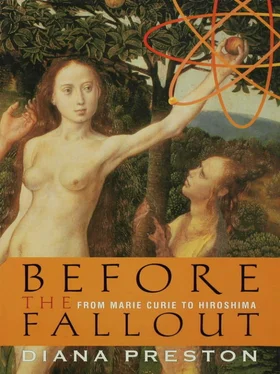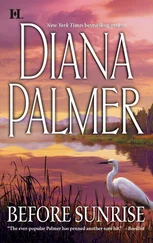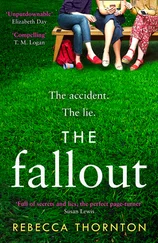While the scientific world mulled over the implications of Thomson’s discovery, the ambitious Rutherford was preparing to move on after just three years at the Cavendish. In August 1898, helped by a testimonial from Thomson praising his originality of mind, the twenty-seven-year-old New Zealander was appointed professor of physics at McGill University in Montreal. The tobacco magnate William MacDonald—a man who hated smoking—wished to use his wealth to fund a world-class physics laboratory. Rutherford’s task, as he wrote enthusiastically to Mary, would be “to do a lot of original work and to form a research school to knock the shine out of the Yankees!” It was the perfect outlet for his ambitions. As early as 1896, as he pondered the significance of Rontgen’s x-rays, he had written to Mary that the challenge was “to find the theory of matter,” in other words, to discover what matter consisted of, “before anyone else, for nearly every professor in Europe is now on the warpath.” It was a race in which, in his view, “the best sprinters” were the Curies and Henri Becquerel, but he believed that he, too, had a chance.
• • •
Although Rutherford was stirred personally by the spirit of competition, the early twentieth century was still a time when scientific results were shared internationally and scientists met each other on friendly terms. However, the world in which they operated was highly nationalistic and competitively imperialist. Even the United States was busy putting down a guerrilla insurgency in its new colony of the Philippines. Britain was involved in the long struggle with the Boers of South Africa. The cause was partly for foreigners’ rights in the Boer republics, but also partly about control of the Rand diamond fields. When the British won, Life magazine concluded, “A small boy with diamonds is no match for a large burglar with experience.”
Japan was still largely unknown to the West, but it had been modernizing rapidly since the Meiji Restoration in 1868. Its defeat of China in 1894-95. had shocked the world and prompted the German kaiser to coin the expression diegelbe Gefahr —“the Yellow Peril.”
Western guidebooks praised the port city of Hiroshima for its lacquer work, bronzes, exquisite landscaped gardens, and succulent oysters. (The latter were cultivated on bamboo stakes driven into the seabed and regularly exposed at low tide.) But during the Sino-Japanese War it became the most important military base in western Japan. Hiroshima’s sixteenth-century founder, the warlord Mori Terumoto, had named the city for its striking and strategic waterside setting— Hiroshima means “wide islands.” The delta of the River Otagawa breaks into six channels as it flows down from the mountains to the north through the city to the silver waters of the Inland Sea, producing a series of fingerlike, sandy peninsulas that were then crisscrossed from east to west by more than seventy bridges. At the southern tip of the easternmost peninsula sat the newly constructed Ujina port, built partly on reclaimed land and connected to the main city railway station by a four-mile spur built in just over two weeks.
In 1894, after making this short rail journey from barracks in the city, troops had embarked for China from the harbor. Lighters carried men and supplies out to the larger transport ships that lay at anchor side by side with the navy’s gray warships. The emperor moved his imperial headquarters from Tokyo into the sixteenth-century Hiroshima castle. Imperial officials chatted in the city’s bustling teahouses and formal gardens landscaped with maple and cherry trees. The emperor ordered the construction of a new building to house meetings of the Japanese Parliament, known as the Provisional Diet, and himself came to Hiroshima to attend its meetings.

Mori Terumoto
Hiroshima for a period assumed the status of a temporary capital. In 1900 its port was busy once more as Japanese troops sailed to China to help Western forces suppress the Boxer Rebellion. With the support of the formidable empress dowager of China, the Boxers—a peasant sect opposed to the increasing territorial and commercial exploitation of China by the West and Japan—had risen up, murdering the Japanese and German envoys and imprisoning the Western ambassadors for fifty-five days in their legations in Beijing. Japanese troops made up roughly half of the international relief force and impressed Western observers with their discipline and courage. They would be even more impressed when, in 1904, Russia and Japan would go to war over their conflicting commercial and territorial aspirations in Korea and Manchuria. Hiroshima would again become a major port of embarkation. Its citizens cheered the departing troops and nursed the returning wounded. Kimono-clad members of the Shinshu Aki Women’s Association met in Hiroshima’s Honganji Temple, where, kneeling decorously back on their heels, they rolled more than ninety thousand bandages to bind the soldiers’ wounds. They rejoiced at news of Japanese success.
The Russian Baltic fleet sailed around the world to ignominious destruction at the Battle of Tsushima by the Japanese fleet commanded by Admiral Togo. On land, Japanese troops won many victories and occupied the Russian island of Sakhalin. The American president Theodore Roosevelt brokered a peace conference, a pioneering move onto the world stage by the United States. Under the terms of the peace treaty, Port Arthur and the southern half of Sakhalin were leased to Japan, Korea became a Japanese dependency, and Manchuria returned to Chinese sovereignty. Many Japanese thought the terms too generous to Russia and protested with considerable civil disturbances. Admiral Togo’s flagship was sunk in Tokyo harbor, and a fire in a major army storehouse in Hiroshima was rumored to be the work of arsonists opposed to the treaty. To the rest of the world, Japan’s victory meant that it had become a major power and a considerable naval presence in the northern Pacific.
• • •
Ernest Rutherford, the young scientist from the southern Pacific, settled in happily at McGill. He enjoyed his first winter, breathing in the glacial air, walking on the frozen St. Lawrence River, and watching huge chunks of ice being cut and stored, ready for sale when summer came. In 1900, the year of the Boxer Rebellion, he was able finally to go to New Zealand and wed Mary. They set up house in Montreal. A piece of student doggerel:
Ernie R-th-rf-rd, though he’s no fool,
In his lectures can never keep cool,…
suggests that Rutherford did not always find it easy to deal with less gifted undergraduates. Nevertheless, he and Mary welcomed research students to tea. It was a friendly atmosphere where Rutherford talked and blew clouds of smoke from the ubiquitous pipe that Mary reluctantly but indulgently allowed him to smoke. As a letter to her from Rutherford in 1896 shows, she had initially been strongly opposed to the habit. Rutherford pleaded: “A good long time ago, I gave you a promise I would not smoke… but I am now seriously considering whether I ought not, for my own sake, to take to tobacco in a mild degree. You know what a restless individual I am, and I believe I am getting worse. When I come home from researching I can’t keep quiet for a minute, and generally get in a rather nervous state from pure fidgetting. If I took to smoking occasionally, it would keep me anchored a bit and generally make me keep quieter…. Every scientific man ought to smoke, as he has to have the patience of a dozen Jobs in research work.” There was, however, no whiskey or wine. One young man recalled regretfully that “in the Rutherford household alcohol was regarded with suspicion.”
Читать дальше













